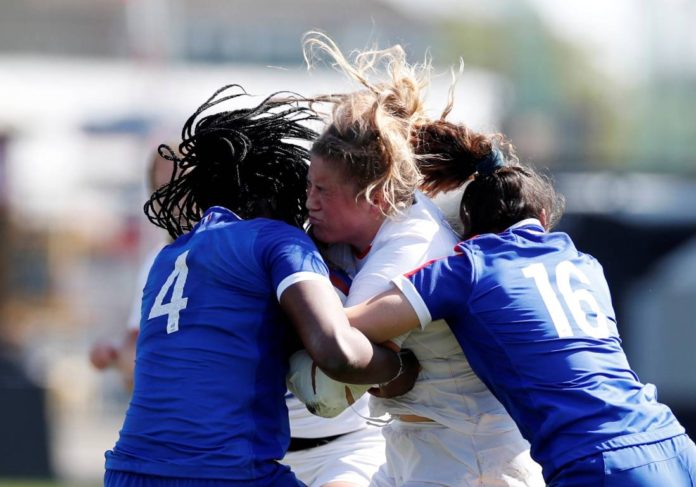
* Any views expressed in this opinion piece are those of the author and not of Thomson Reuters Foundation.
Being excluded from rugby for being gay was one of my worst nightmares, so I am heartbroken to see it happen to transgender players
Devin Ibanez (@thatgayrugger) was the first openly gay professional rugby player in the United States playing major league rugby and now is an advocate for LGBT+ inclusivity and equality in sport
“Rugby is the most inclusive sport.”
“No matter what size or shape you are, there is a place for you in rugby!”
I have been playing rugby around the world for more than 12 years and this is the common core value held by our sport. Regardless of where you are playing, you will hear this sentiment echoed.
As rugby players, we know that once you step onto that pitch, you’re bound to other players by a mutual love of the game. When the competition is over, you can all shake hands and be grateful that you were able to take part in this incredible sport. No matter how physically big or small, fast or slow, we all have a place in rugby.
I knew that I was gay from a young age, even coming out to my loving and accepting parents when I was 12. However, I didn’t feel comfortable being myself in sports or at school. I struggled with connecting with my peers and suffered from depression. When I found rugby, I found a community that told me all would be welcome, and that positivity helped me thrive. Rugby gave me a purpose when I was struggling to find a path in life.
For years, rugby was also seen as a safe haven for trans women. But in 2020, World Rugby became the first world sports-governing body to ban trans women athletes from international women’s competition, citing alleged “safety concerns”.
In a review, World Rugby said it had “concluded that safety and fairness cannot presently be assured for women competing against transwomen in contact rugby”.
I spoke with Gregory Tierney at the University of Leeds, who led the original and follow-up studies. He told me that “there is a need for more data on transgender athletes in rugby and that is why World Rugby has made it a priority area in their current research funding call”.
Following the announcement, several rugby unions, including the United States’ national body, rejected the ban on trans players. USA Rugby said it did not support the ban, adding that “transgender athletes will continue to be able to compete in women’s competitions domestically in the United States”.
Every trans player I have spoken with has stressed how important rugby is to them. They struggled to find a sport where they felt fully accepted and part of a community. Finding rugby in many ways helped save their life, as it saved mine. The new ban has cast a shadow over all that. Now trans players are questioning whether they are welcome in a sport suddenly known for its exclusionary policies.
They’re also grappling with new uncertainties: will young trans athletes still be selected for youth development sides? How long until trans people are banned completely from every level of the game?
As a gay athlete, being excluded because of my sexuality was one of my biggest fears. The idea that I could lose 12 years of hard work, be told that I wasn’t welcome in the sport and that I didn’t deserve to play professionally, terrified me. To see my worst nightmare unfold for the trans community is heartbreaking.
Why is the rugby community suddenly silent about the values we’ve all enthusiastically embraced? Unfortunately, the trans rugby community is very small, so most players do not know any trans athletes personally. But think about what your biggest passion has meant to you and how you’d feel if that were taken away by something outside your control.
Trans athletes’ worst nightmare is happening right before our eyes, and I urge the rugby community to speak out against this injustice.
Trans women are women, and rugby should be for all.
Photo of Devin Ibanez: Attitude Magazine / Anthony Grassetti
Related stories:
OPINION: Trans students simply want to play the sports they love – and inclusion is the way to go
OPINION: Transgender girls are not a threat to school and college sport
Biden’s pro-LGBT+ order sets stage for trans rights showdown







